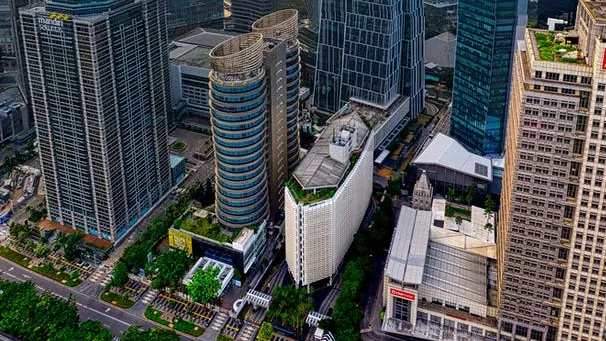
How did Indonesia’s real estate investment market fare in Q3?
The hotel and retail markets showed promise, office stabilised, and residential remained under pressure.
According to Savills, Indonesia's economy is proving to be quite robust in the face of the global political and economic turmoil. Amid fluctuations in the world economy, Indonesia's economic growth in the third quarter is expected to remain firmly in positive territory above 5% while inflation stands at a manageable 3.3%.
Hotel market performance during the third quarter of 2023, according to a Savills report, showed the highest increase in occupancy compared with the previous quarter, from 47.6% to 55.5%, driven by MICE activity, both national and international.
Here’s more from Savills:
The large number of offline events and business symposiums from both the government and private corporations have also contributed to the improving hotel performance. The ASEAN Summit in Jakarta, which was held in July and September, had quite a positive impact, especially on 5-star hotels. Based on the hotel market cycle, the third quarter is the peak for MICE activities by ministries and state-owned companies.
Currently, Indonesia is a promising landscape for the retail sector, and new brands such as MLB, Lululemon and Pinko are entering the market for the first time. Retail market movements in Indonesia are still centralised on the island of Java, especially Jakarta. Apart from lifestyle concepts, temporary ‘pop up’ retail concepts are gaining in popularity, as a quick win alternative for land optimization. Demand absorption has been supported by F&B, fashion, and other specialty tenants. Department stores are still downsizing in moves aimed at improving cost efficiency.
The office market showed some stabilisation in the third quarter of 2023, although it continued to struggle with limited absorption and depressed prices. This modest uptick in performance was driven by many companies switching from the WFH model to office-based working, especially the private sector, including those firms which had previously adopted a hybrid model. Office market movements have been dominated by relocations, especially to ready-to-use office space. This also reflects companies’ efforts to realise cost savings and shorter move-in times.
The apartment market has remained under pressure, and absorption of only 180 units in the third quarter was lower than during the previous period. The election in 2024 is becoming an issue causing the slowdown in the apartment market. The apartment market up until the end of September 2023 had not shown any signs of growth. Limited demand could also be due to the dearth of options available from existing projects, coupled with an absence of newly launched projects.
Demand for industrial land stood in positive territory, reflected by the expansion of existing tenants, especially companies from Indonesia, Korea, and Japan. Most of the demand is currently from Japanese, Indonesian, and Korean companies for electric vehicles, automotive manufacturing, FMCG, packaging, and data centres. Data centres continue to be a new source of demand absorption. The logistics and industrial markets continue to grow rapidly due to the country’s strong economic performance and the accelerated adoption of e-commerce.



















 Advertise
Advertise





